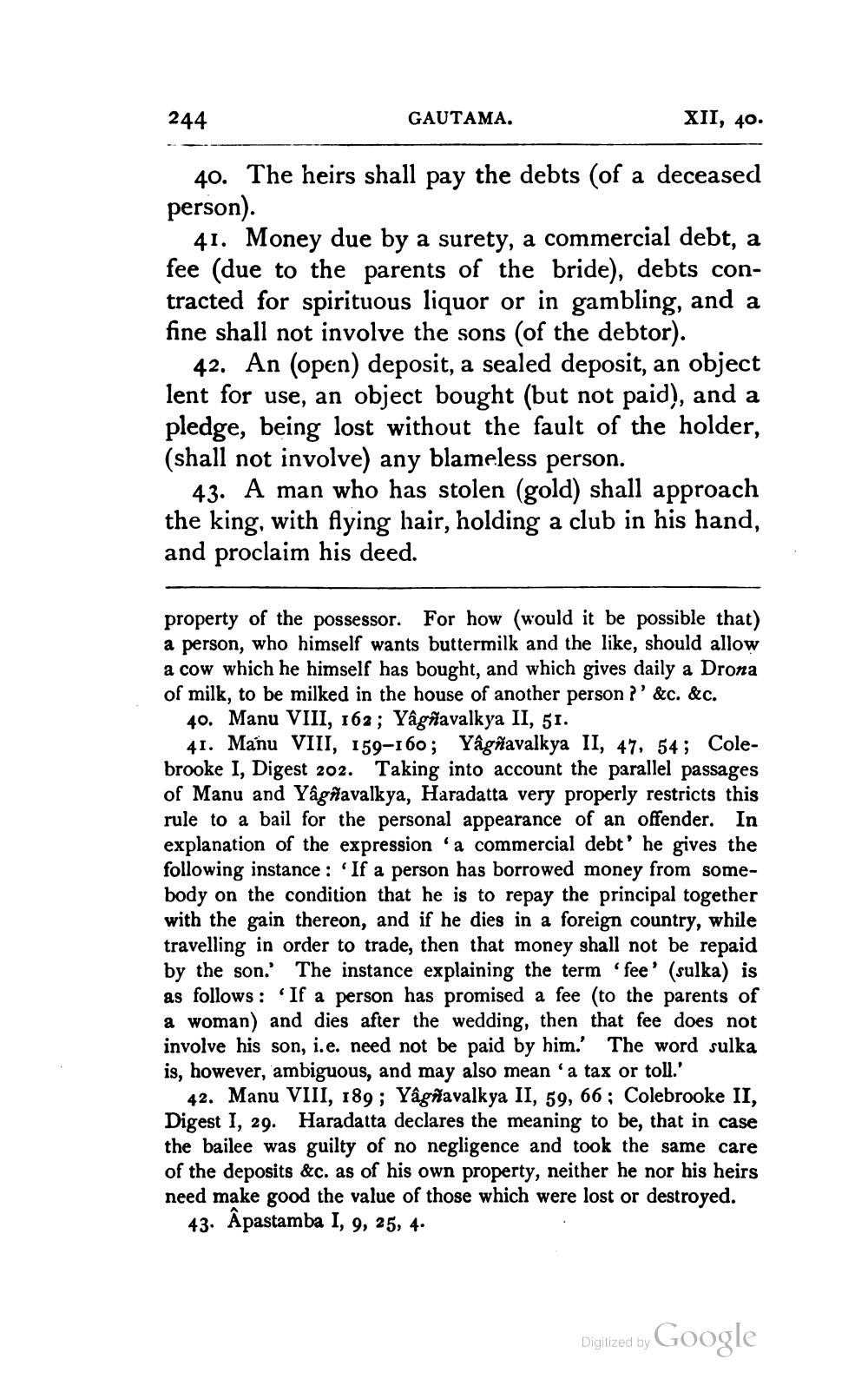________________
244
GAUTAMA.
XII, 40.
40. The heirs shall pay the debts (of a deceased person).
41. Money due by a surety, a commercial debt, a fee (due to the parents of the bride), debts contracted for spirituous liquor or in gambling, and a fine shall not involve the sons (of the debtor).
42. An (open) deposit, a sealed deposit, an object lent for use, an object bought (but not paid), and a pledge, being lost without the fault of the holder, (shall not involve) any blameless person.
43. A man who has stolen (gold) shall approach the king, with flying hair, holding a club in his hand, and proclaim his deed.
property of the possessor. For how (would it be possible that) a person, who himself wants buttermilk and the like, should allow a cow which he himself has bought, and which gives daily a Drona of milk, to be milked in the house of another person?' &c. &c.
40. Manu VIII, 162; Yâgñavalkya II, 51.
41. Manu VIII, 159-160; Yâgħavalkya II, 47, 54; Colebrooke I, Digest 202. Taking into account the parallel passages of Manu and Yâgħavalkya, Haradatta very properly restricts this rule to a bail for the personal appearance of an offender. In explanation of the expression 'a commercial debt' he gives the following instance: If a person has borrowed money from somebody on the condition that he is to repay the principal together with the gain thereon, and if he dies in a foreign country, while travelling in order to trade, then that money shall not be repaid by the son. The instance explaining the term 'fee' (sulka) is as follows: If a person has promised a fee (to the parents of a woman) and dies after the wedding, then that fee does not involve his son, i.e. need not be paid by him.' The word sulka is, however, ambiguous, and may also mean'a tax or toll.'
42. Manu VIII, 189; Yâgñavalkya II, 59, 66; Colebrooke II, Digest I, 29. Haradatta declares the meaning to be, that in case the bailee was guilty of no negligence and took the same care of the deposits &c. as of his own property, neither he nor his heirs need make good the value of those which were lost or destroyed.
43. Apastamba I, 9, 25, 4.
Digitized by Google




